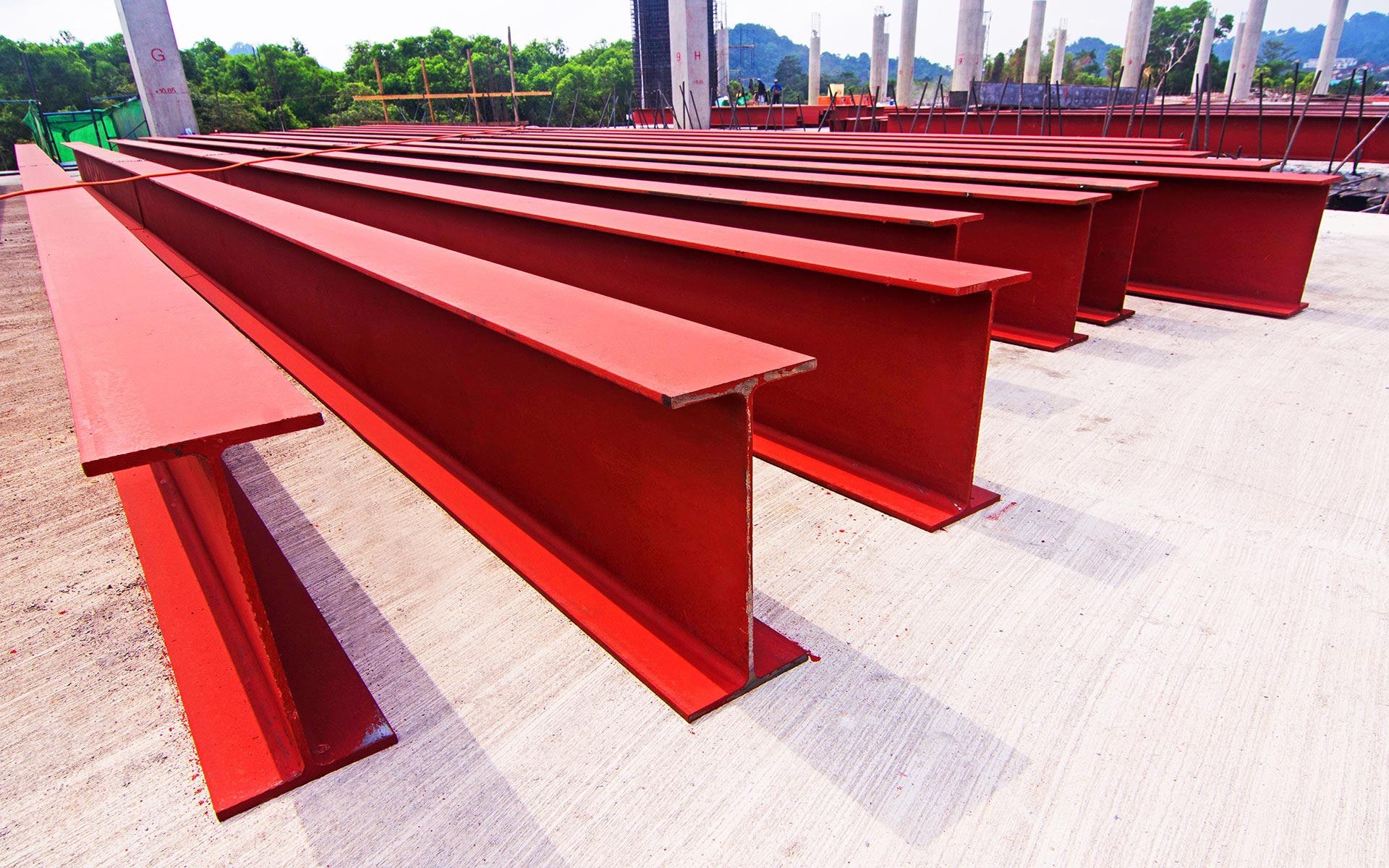
Weak market conditions drag down steel beam prices in Europe
Fastmarkets’ weekly price assessment for steel beams, domestic, delivered Northern Europe was €690-755 ($734- 804) per tonne on Wednesday, down by €10-15 per tonne from €700-770 per tonne a month earlier on March 20.
Similarly, Fastmarkets’ weekly price assessment for steel beams, domestic, delivered Southern Europe was €690-755 per tonne on Wednesday, down by €10-15 per tonne month on month from €700-770 per tonne.
Sources told Fastmarkets there was heavy downward pressure from stockholders and traders due to slow consumption and a depressed European economic outlook.
In its Winter 2024 Economic Forecast in February, the European Commission revised its growth outlook for the EU in 2024 to 0.9%, down from 1.3% in its autumn 2023 forecast.
Inflation in Europe is expected to fall to 3% this year from 6.3% in 2023, according to the forecast.
Many market participants were attending the Tube Trade Fair in Dusseldorf at the end of the latest pricing period, from April 15-19, with price movements traditionally following the event.
Scrap prices in Turkey’s bellwether market have remained relatively stable so far this month.
Fastmarkets’ calculation of its daily index for steel scrap HMS 1&2 (80:20 mix) North Europe origin, cfr Turkey was $378.74 per tonne on Wednesday, up $3.31 per tonne month on month from $375.43 per tonne on March 18.
Published by: Holly Chant


HRC prices in Europe might be at ‘rock bottom,’ sources say
Trading was still rather limited in the European HRC market, but producers were reluctant to reduce their prices further, citing high costs.
“Restocking is slow; buyers do not want to commit to big volumes because demand downstream is still bad,” a mill source told Fastmarkets.
“But trading activity is still a bit better than two weeks ago,” the mill source added.
“Demand remains quite limited from all major steel-using sectors, and it is not likely to rebound, so the stabilization of steel prices is the best-case scenario we can count on now,” a source at a steel-service center said.
Northern European mills were offering HRC with May-June lead times at €630-640 ($671-681) per tonne ex-works.
Deals were reported at €620-630 per tonne ex-works in Germany.
A Benelux-based re-roller was offering HRC with lead times of four to five weeks at €600 per tonne ex-works.
“The market is oversupplied, and output cuts needed to be done at least a month ago, so the market could see the effect on prices in the second quarter,” a buyer in Germany said.
So far, only Slovakia-based producer US Steel Kosice has confirmed a blast furnace stoppage, Fastmarkets reported on Tuesday.
As a result, Fastmarkets calculated its daily steel HRC index, domestic, exw Northern Europe at €627.08 ($667.44) per tonne on Thursday, down by €3.34 per tonne from €630.42 per tonne the day before.
The index was down by €13.27 per tonne week on week and by €61.92 per tonne month on month.
Sources said that some mills have already started negotiations for the long-term contracts with end users for the second half of 2024, with target prices reported around €780 per tonne, compared with around €750-800 per tonne settled for the first half of 2024.
In Southern Europe, meanwhile, Fastmarkets’ daily steel HRC index, domestic, exw Italy, was calculated at €620.42 per tonne on Thursday, up by €0.42 per tonne from €620.00 per tonne on Wednesday.
The Italian index was down by €4.58 per tonne week on week and by €49.58 per tonne month on month.
Official offers for May-delivery HRC from one local supplier in Italy were reported at €640 per tonne delivered on Thursday, which is equivalent to €630 per tonne ex-works.
Buyers’ estimations of tradeable values were heard at €600-620 per tonne ex-works, but transactions were heard done at no lower than €620 per tonne ex-works so far.
In the secondary market, 4mm HR sheet was heard traded at prices no higher than €720-740 per tonne CPT. Several sources reported that some sellers were selling such material at €700 per tonne CPT, but it was not widely confirmed by the market.
Restocking was limited in Italy, but further price drops were seen as unlikely due to high costs of production.
Besides, import prices were firming up, which was also seen as a supportive factor.
Offers from Asia were heard at €590-600 per tonne CFR, for June-shipment HRC.
A sizable tonnage of Japan-origin coil had been transacted at €590 per tonne CFR earlier this week
Some Asian suppliers had withdrawn their HRC offers from the market by Thursday and were expected to come back with higher offers next week, sources said.
From Turkey, an offer was reported at $660 per tonne CFR without the anti-dumping duty, but the price was considered by buyers to be too high.
Published by: Julia Bolotova


NW European rebar prices remain weak
Rebar players in northwestern Europe see no signal for a resurgence of prices, but do not see much room for a further deterioration either, Kallanish hears.
There has been little move since base prices in many cases undercut the mark of €400/tonne ($427) in March. That translated to a delivered price of €665/t, including the size extra of €265/t. The Lent period meant lean business, and Easter did not bring a resurrection for the construction industry and its suppliers.
A buyer at a distributor in southwestern Germany sees base prices at €390/t, “and with a lot of luck at €380.” One regional mill is recognised for attempting keeping prices up, whilst other buyers report softer figures. A manager of another mill does not contradict the suggestion that €370-380/t is a fair assessment these days.
According to one Dutch buyer, who also reports €375/t as his purchasing price, the mills cannot go any further down to cover their costs. “The only way would be up,” he tells Kallanish.
The mill manager maintains that there is little movement to be expected in the next two quarters on the construction market, neither for volumes nor for prices.
According to another buyer, eastern German rebar mills these days sell material to Poland, noting that this traditionally used to be the other way round. “The European Union has resumed its subsidies for construction there, which had been suspended temporarily,” he states, explaining the better grounds for business in Poland.
Christian Koehl Germany


Italian coil derivative prices continue to weaken
Prices continue to be weak for coil derivatives with the market slow. Sales volumes of both sheet and tube remain weak. The sector is looking at the Tube & Wire trade fair in Düsseldorf which sources hope it may stimulate some buying activity, sources tell Kallanish.
This week the market continues to be quiet. A service centre source says that demand resumed slightly in April. His order books are being filled and lead times are lengthening.
An agent however and another service centre report that volumes have not properly returned and the current orders are delivered at low prices, strongly impacting company results. In Dusseldorf multiple sources report high attendance in the flat world from all over Europe but “nothing concrete is achieved. Contracts are not being agreed,” a source from the trade show comments.
Today the main point of concern is that service centres’ and end-users’ margins are squeezed. The current price of sheet is unsustainable considering coils prices. Sheets sellers do not have the support to increase values. End-users report low values and throughout the value chain sources do not believe in durable increases for hot rolled coils. Some European HRC producers are mulling price hikes to stop the current slide and on the basis of stable import volumes from Asian countries. According to a source, EU levels may rise by about €30/tonne ($32) after the Düsseldorf event.
While Italian HRCs contracts hover at €620-630/t delivered, domestic hot rolled sheets stand at around €700-710/t ex-works. Those service centres trying to sell at €730-740/t will lose orders. Pickled sheets are at €730-740/t. The proposed level of €750/t has been refused by buyers. Service centres now receiving arrivals of HRC paid €680-700/t delivered on average, the prices at the beginning of March. With the current sheet levels they are losing money.
In a previous interview this week, another service centre said demand should continue to improve for about a month “before gaining confidence and refusing customers’ low bids, and then think about increasing our prices.”
Natalia Capra France

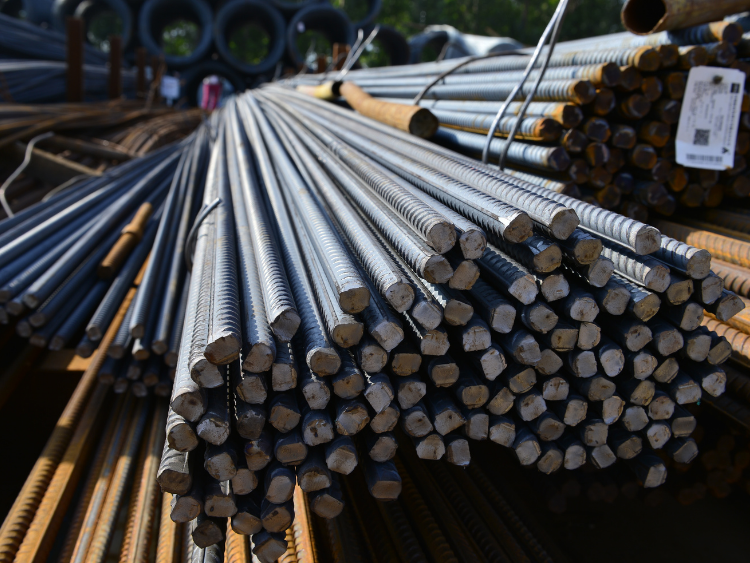
Italian rebar flattens, long producers prepare for increases
Italian rebar prices are flattening week-on-week as the latest effort by local producers to implement an increase was not successful, market sources tell Kallanish.
Rebar makers were seeking €30-40/tonne ($32-42) increases ten days ago but the stagnating market and low consumption caused values to remain stable. The increases have had the effect of at least stopping the price decline. Producers are asking approximately €330/t base ex-works. Domestic values are still pegged at €290-300/t base ex-works. Including extras, rebar contracts remain at €550-560/t base ex-works. Domestic mesh is flat in contracts at about €380-390/t base ex-works. Buyers must add transport costs and around €300/t in size extras, sources suggest.
“Mesh is particularly difficult product to sell at the moment because stocks are extremely high,” a seller says.
On other long products such as beams, merchant bars and wire rod, producers are mulling increases starting next week, multiple source confim, at an average of €20/t. This follows ArcelorMittal’s move to raise all commodity grade long steel prices by €20/t across Europe this week, effective immediately for all new orders.
Several long mills will implement production stoppages in the final week of April for the two bank holidays of 25 April and 1 May, balancing demand and supply. A longs distributor says he continues to adopt a wait-and-see attitude and refuses to buy at rising values.
Natalia Capra France


Bowim foresees challenging sales, margins in 2024
The year ahead will be challenging for sales and margins, says Polish distributor Bowim, after 2023 saw weakening European demand and falling prices that prompted mills to limit production or shipments.
In 2023, high energy prices curbed industrial production and new investments in Europe, and therefore also steel demand, while the construction sector downturn also hit steel requirement. Persistent inflationary pressure and high interest rates exacerbated the situation, Bowim observes.
Bowim’s shipments were flat on-year in 2023 at 501,697 tonnes, with sheet accounting for 201,574t, slightly up on-year. Pipe and profiles were also up slightly to 94,694t, while rebar sales jumped 28% to 82,485t. However, deliveries of merchant bar and prefabricated steel reinforcement dropped, Kallanish notes.
Consolidated revenue in 2023 fell 25% on-year to PLN 2.07 billion ($506.3 million) and net profit plummeted 88% to PLN 13.3m.
Adam Smith Poland

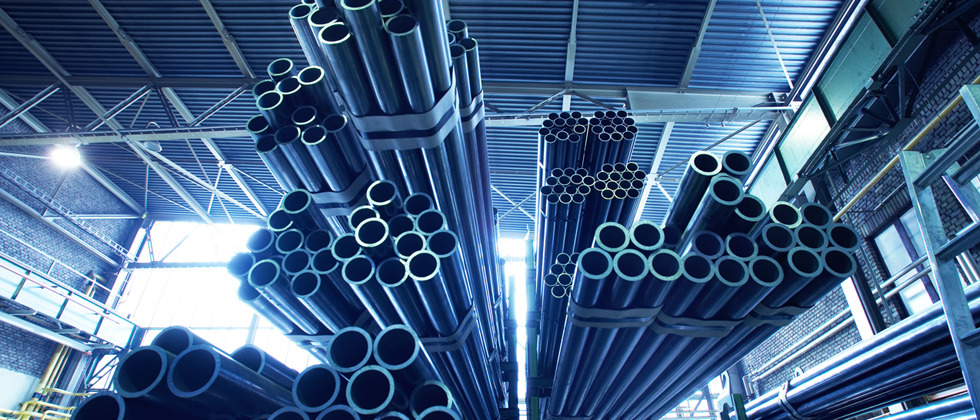
Assofermet sees significantly lower on-year consumption for flats
The attitude of buyers remains cautious in April, but the belief that the price floor has been reached is spreading throughout the Italian service centre sector, says Italian steel trade association Assofermet in its latest market note obtained by Kallanish.
However, despite orders from end-users remaining substantially lower compared to the same period last year, the association is registering growing interest from customers buying according to their programmes for the coming months.
“There are high expectations for the Tube & Wire trade fair … the outcome of which could generate a change in market direction,” the note states. There was a further weakening of coil demand from end-users and service centres in March, with a consequent price decline, it adds. “The general lack of propensity to purchase … has led [Italian] steel mills to review selling prices in an attempt to react to the offers from Asian steel mills,” the association notes.
Assofermet notes that the EU’s “other country” safeguard quota for hot rolled coil has been exhausted in the second quarter again within days. In 2023, imports of this product category increased substantially from Asia. The huge volumes not cleared through EU Customs are now added to the volumes that will be cleared during this quarter and remain stored in the port terminals. This entails “heavy economic repercussions on the importer and on the organisation of port logistics,” the association concludes.
Natalia Capra France

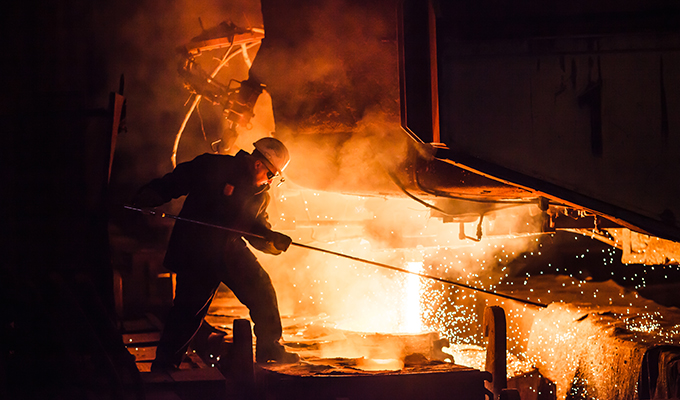
European industry bemoans bureaucracy, no incentives for transition
The EU needs to cut red tape and reward companies that meet emissions reduction targets in order to incentivise costly investments into decarbonisation, participants said at this week’s Industry in Transition conference in Katowice.
Stefan Moritz, secretary general of the European Entrepreneurs “CEA-PME” confederation, bemoaned the European Commission has failed to get rid of administrative hurdles that delay investment. The EU has a Net-Zero Industry Act, but Moritz asked: “Can we have a net zero administration act?” He added: “Can we reward virtuous consumers, those who use less energy?” Guaranteeing tax breaks or financial rewards would incentivise investment, he suggested.
The comments came despite European commissioner for the internal market Thierry Breton opening the conference with a video message assuring the Commission is reducing bureaucracy, which should benefit green steel projects.
As for the impact of the transition on industry, Moritz asked: “Is it a cost or a benefit? We only see the costs now, but we want to make it a benefit. In the long run, we want to make sure renewables and nuclear are cheaper than energy today. But this has massive infrastructure costs and raw materials supply challenges. These very high investment costs must be diluted for the next 26 years in order to prevent an economic shock now, to get step by step to where we need to go.”
ArcelorMittal Poland chief executive Wojciech Koszuta stressed the “steel industry wants to stay in Europe … But we need to have tailwinds, or at least no headwinds. If we have lots of regulations, we need to adapt to them, yes. But this regulation should not stop businesses from functioning. The technology is there – a portion of Polish steel is already produced in electric arc furnaces. But this technology costs money and we will need to spend lots of money.”
Koszuta cautioned against the EU giving up its steel market share to imports. In 2012, imports accounted for 12% of the bloc’s steel consumption. In 2023, this had risen to 26%. “Is this a direction we want to go in? I think not,” the ceo said at the event attended by Kallanish. Europe needs to have captive steel supply to produce the infrastructure required for its renewable energy rollout, he added.
“Steel in Europe is currently too expensive. That makes our wind mills more expensive, our cars and building houses more costly,” Moritz pointed out. “We are now starting to buy wind turbines from China. We already buy batteries from China, already buy solar from China. What else do we want to buy from there?”
He also said the Carbon Border Adjustment Mechanism must cover not only steel imports but also imports of the final steel-using product, such as wind turbines from China.
Adam Smith Poland

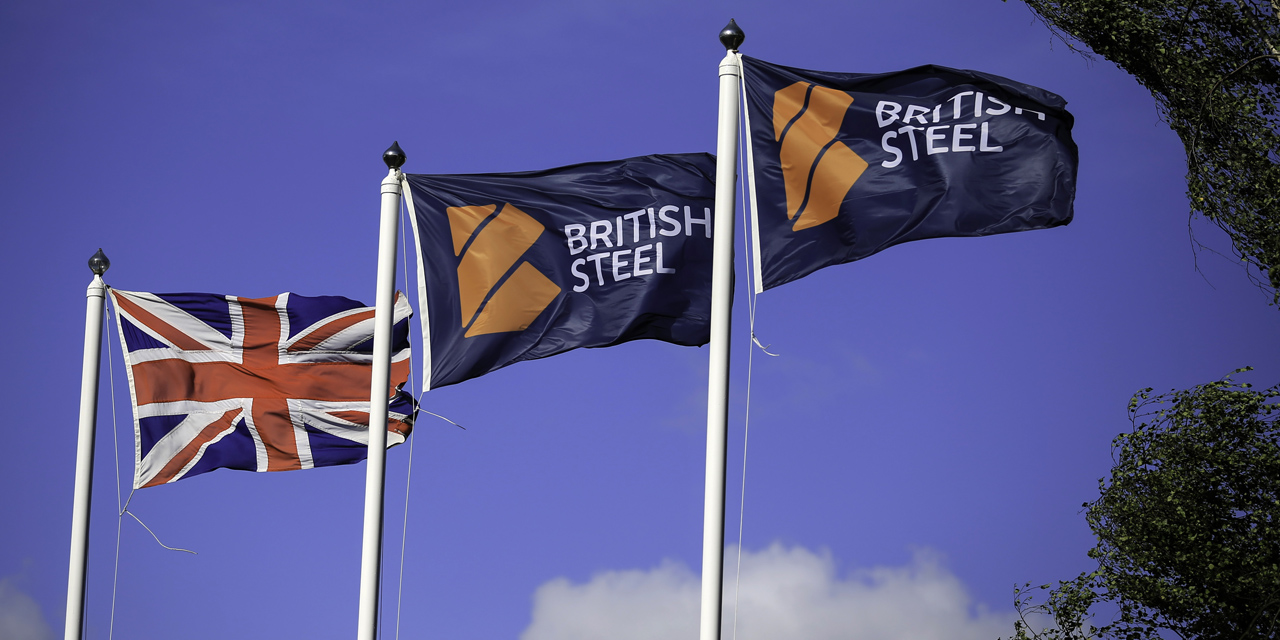
UK Steel proposes 2026 CBAM start
UK Steel has proposed the UK government bring forward the implementation of its prospective Carbon Border Agreement Mechanism (CBAM) by one year to 2026, to align with the EU’s schedule. This would minimise the risk of trade barriers and trade diversion, the UK trade association says.
The recommendation is one of 12 made by UK Steel in a new report on key design principles for CBAM.
“Over 90% of global steel production faces no carbon cost, so it is crucial that a new UK carbon border creates a level playing field on carbon pricing. This will ensure that imported steel faces similar levels of carbon costs as domestic steel producers,” UK Steel director general Gareth Stace says in a note sent to Kallanish.
“The UK CBAM must be designed to be robust and impenetrable. Otherwise, there is a substantial risk of significant damage to the UK steel industry at the time of once-in-a-lifetime investment in state-of-the-art, modern Net Zero steel production,” he adds.
An estimated 22.5 million tonnes of high-emission steel currently imported by the EU would be at higher risk of being diverted to other open markets once EU CBAM is implemented in 2026. If just 10% of this were to be diverted to the UK, that would result in a 45% increase in UK imports, corresponding to around 80% of the UK market, UK Steel says.
In 2026, EU free allowances will be reduced by 2.5%, and the UK government plans to implement its reforms to free allocation. This will result in importers of UK-made steel having to buy EU CBAM certificates, as the legal and cost compliance obligations are on importers, the trade association notes.
“Where the actual cost falls directly or indirectly will be a matter for commercial discussions and agreements with any EU-based customers and will be bespoke to each commercial agreement. However, an additional cost is placed on UK-made steel if imported to the EU market, which will constitute as a disadvantage to the UK steel industry’s biggest export market,” UK Steel says in the report.
UK Steel also recommends delaying the inclusion of scope 2 emissions, until there is a complete decarbonisation of the electricity grid. It says all UK Emissions Trading System (ETS) sectors should be covered to minimise the risk of material substitution, as should products where CBAM materials make up a substantial part, to avoid value chain circumvention. CBAM should also be linked to UK ETS and be based on weekly average ETS prices.
Moreover, UK CBAM should obtain mutual recognition with EU CBAM to enable frictionless trade with the UK’s largest trading partner. Non-EU exports should meanwhile be exempted from UK ETS costs to avoid disadvantaging trade to non-EU markets, and CBAM revenue should be earmarked for industrial decarbonisation.
Adam Smith Poland

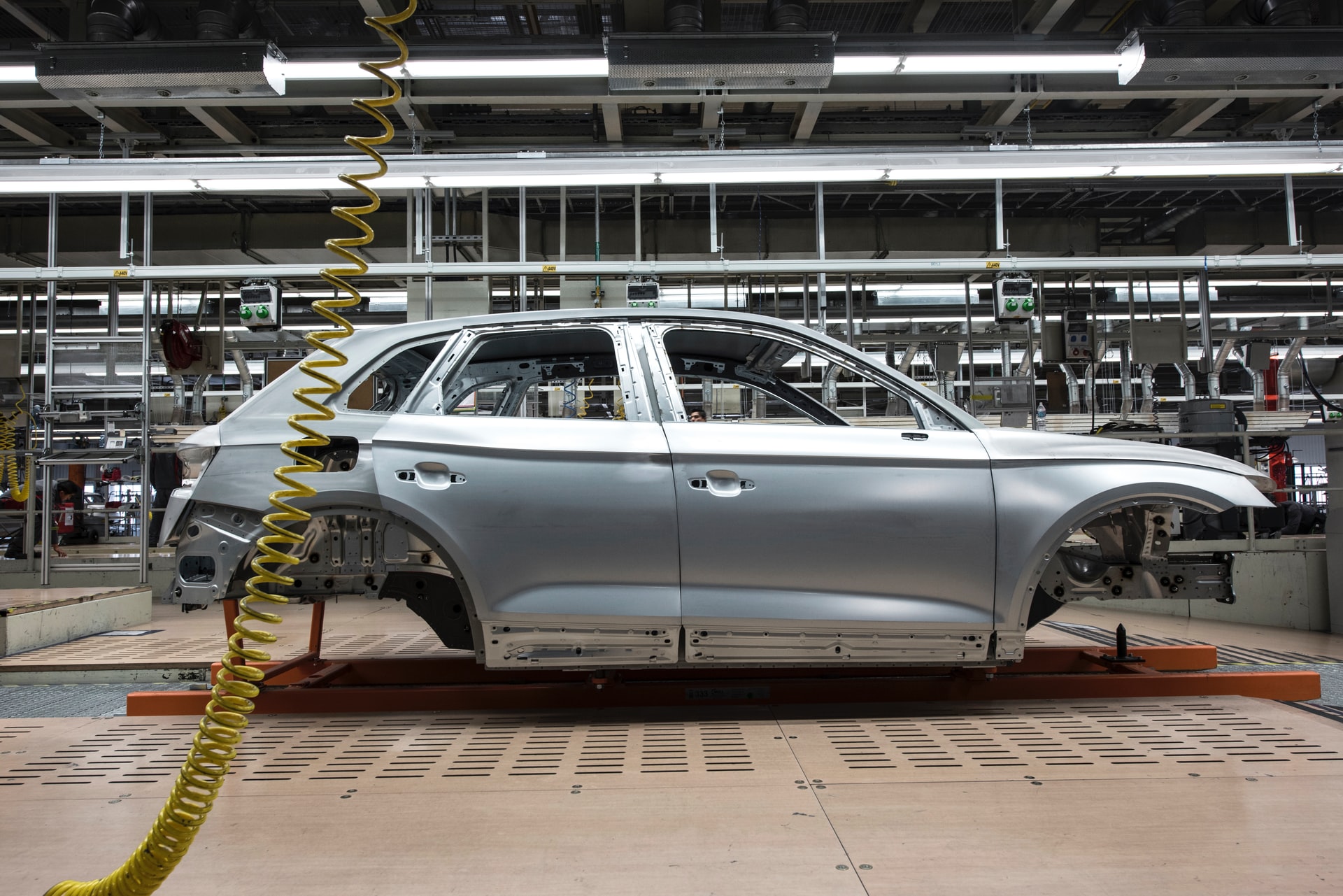
Italian car output declines, underperforming European neighbors
Italian passenger car production declined in February and in the first two months of the year, Kallanish notes from local carmakers association Associazione Nazionale Filiera Industria Automobilistica (Anfia) preliminary data.
Car output fell year-on-year by 5.1% in February to 41, 873 units and by 19.1% on-year in the January-February period to 69,249 units.
By comparison, German two-month output declined by 5% to 674.900 units, and by 2% to 374,800 cars in February. The UK recorded a rise in February of 14.6% to 79,907 cars and of 17.8% to 162,904 units in January-February. Spain’s February car production increased by 1.8% to 182,567 cars and in January-February by 9% to 359,375 cars, Anfia points out.
“The automotive production sector is in the context of industrial production still decreasing in February compared to the previous year’s levels. In February, the industrial production index as a whole closed down 3.1%, and is down 4.4% in the first two months of the year compared to the same period in 2023,” Anfia says in a report.
Italy has 23 car production plants. Spain has 17 plants, France 31 and Germany 42.
Last year, Italy produced 796,394 vehicles in total, including cars, vans and trucks. Anfia is collaborating with the government and Stellantis to define a roadmap for the automotive industry’s relaunch and energy transition. It aims at boosting Italy’s automotive production capacity beyond the level of 1 million vehicles/year through state support on decarbonisation, research and development and new production plant investments.
“We hope that in the coming weeks, consumers will be able to take advantage of the upcoming incentives of the new green bonus for the purchase of low-emission vehicles. Together with the actions to support demand for new technologies, it is important to create the conditions to increase national vehicle production volumes in the short-medium term, ensuring the levels of employment and competitiveness of the supply chain during and beyond the energy transition,” Anfia general director Gianmarco Giorda comments.
According to the World Steel Association’s Short Range Outlook (SRO) steel demand forecast for 2024 and 2025, while other steel-consuming sectors should show some recovery in 2024 and 2025, the automotive industry which showed a strong activity improvement in 2023 is expected to experience weak growth in 2024 (see Kallanish passim).
Natalia Capra France


